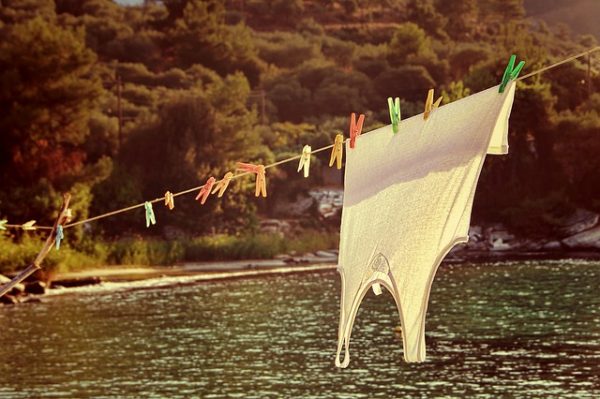-->
So
when Joseph came to his brothers, they stripped him of his robe, the coat of
many colors that he wore; and they took him and threw him into
a pit.
-Genesis
37:23-4
One cannot acquire
Torah who has not failed in it
-Talmud, Gittin 43a
At the beginning of this week’s Torah portion, Va-yeshev, we meet our patriarch, Joseph. As a young man, he seems to have it all:
striking good looks, his father Jacob’s abiding favor, the sartorial splendor
of his many-colored coat, and the ability to prophesy through dreams and their
interpretation. Yet Joseph’s life takes
some very difficult turns because his privilege spawns an arrogant adolescent narcissism. At seventeen, Joseph is a gifted but spoiled
youth who lacks empathy or even awareness of others’ feelings. He flaunts his favored status over his
brothers, recounting his dreams of personal glory in a manner that can only
inflames their jealousy. They respond by
selling Joseph into Egyptian slavery.
Things go from bad to worse.
After Joseph resists the advances of his master’s wife, he winds up in
prison, where he languishes, lost and forgotten. The youth who seemed so destined for
greatness has hit rock bottom. But it is
in precisely this place of darkness and despair that Joseph becomes worthy of
his birthright and his visions of leadership.
When he encounters two fellow prisoners, Joseph notices that they are
distraught before either one utters a word.
With great compassion, he asks: “Why do you appear downcast today?” The vicissitudes of life have helped Joseph
mature from a gifted but callous lad into a genuine mentsch.
Such is the nature of our humanity: personal growth is most
often built upon adversity and even failure.
As Ernest Hemingway famously notes: “The world breaks everyone, and
afterward, many are strong at the broken places.”
Singer-songwriter Tift Merritt tells a similar story in her
song, “Broken,” with striking parallels to Joseph’s life. She opens:
Once you were a straight shot, a shiny quarter
in a new slot,
Night would keep the dreams that you got for afternoon
Night would keep the dreams that you got for afternoon
We begin whole,
shiny and new, with big dreams for the future.
Just close your eyes for this long, something's mixed up and
something's gone,
Only fingers can you count on, and one leaves two
Only fingers can you count on, and one leaves two
Now you're broken and you don't understand
What is broken falls into place once again
What is broken falls into place once again
Invariably, things
go wrong. Dreams don’t work out as
planned. Struggle, suffering and loss
inevitably break us.
I wish I were a freeway laid out clearer than a
bright day
I'd run wide open down this causeway like brand new
I'd run wide open down this causeway like brand new
We long for better,
easier times, now long past. We think we
will never recover from life’s pains and indignities.
But—more often than
not—we do, and when we do, we grow strong at the broken places. The dark passages of our journeys open us to
new possibilities. The brokenness is
never made fully whole, but we mend—and sometimes achieve a higher level than
we could have reached without the trials we’ve endured. As Talmud teaches:
The truly penitent stand in a place the totally
righteous cannot reach.
One cannot attain Torah who has not failed in
it.
We think we will
break but we mend.
But I'm broken and I don't understand
What is broken falls into place once again
Hand of kindness, come and gather me in like a rainstorm,
Again and again and again,
I think I will break but I mend
What is broken falls into place once again
Hand of kindness, come and gather me in like a rainstorm,
Again and again and again,
I think I will break but I mend
Our challenge is to transform our difficult times and events into pathways of growth and compassion. Out of the heat of crisis, new seeds of hope and possibility can germinate. Like Joseph, we grow from our brokenness.
To hear Tift Merritt’s recording of “Broken”:

